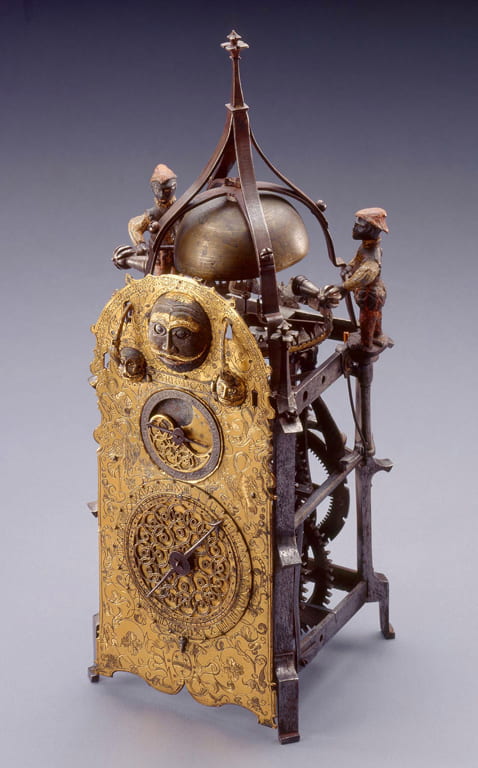Our paper about the invention of the pendulum clock mechanism:
Blumenthal, A.S.; Nosonovsky, M. Friction and Dynamics of Verge and Foliot: How the Invention of the Pendulum Made Clocks Much More Accurate. Appl. Mech. 2020, 1, 111-122. https://doi.org/10.3390/applmech1020008
“The pendulum mechanism introduced in 1658 by Huygens had its own natural frequency, with friction having only a minor effect on the period of oscillations. Scaling arguments suggest that the clocks’ accuracy improved by a factor of the order of π/μ, or by about 30 times, which is consistent with actual historical data. The invention of the pendulum can be viewed in the broader context of the scientific revolution of the 17th century as a success of the reductionist paradigm of the natural philosophy associated with Galileo and Newton, when simple linear phenomena (linear oscillations, two-body gravity problems, etc.) were identified to explain the behavior of complex systems.”

“Galileo’s discovery of linear systems, along with the astronomical observations by Galileo, Kepler and Newton that the motion of planets in the Solar System can be decoupled as a combination of two-body problems, had far-reaching consequences for the history of physics in the early modern period. These discoveries strengthened the reductionist method of establishing the laws of nature from the observations of parts of a system, whose behavior is independent of their context. Wiltsche [20] pointed out that pre-Galilean Aristotelian mechanics studied natural occurrences as opposed to the study of phenomena (“the invariant forms that allegedly underline natural occurrences”) introduced by Galileo. The latter systematically excluded causal accidents as impediments, and friction was often ignored and neglected in the search of refined and purified phenomena [21].”

Typical dependencies of the period of oscillation on the coefficient of friction for the verge (solid) and pendulum (dashed) mechanism. The slope of the the verge mechanism, which doed not have any natural frequency, is about 30 times greater than that of the pendulum mechanism (with a natural frequency).

Wall Clock with Automation, Southern Germany 1550/1600. Iron, bell metal, brass, gilt copper, and polychrome decoration 14 × 6 × 6 1/2 in (35.56 × 15.24 × 16.51 cm). Milwaukee Art Museum, Purchase, with funds in memory of Betty Croasdaile and John E. Julien M2002.182. Photographer credit: John Nienhuis.
See also:
How clocks worked without a pendulum in the 14th century
How did the tower clock work before the pendulum was invented?